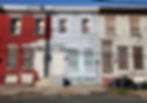
If you're a renter and you've read your lease, then you've seen the language that purports to insulate the landlord against liability for injuries occurring on the premises after the tenant takes possession of the property. Imagine this scenario -- you rent and move into a townhouse where, under the lease, you are responsible for snow and ice removal on your front steps. You move in the beginning of the month of August and live there, issue free for five months. Then, one cold day in January, you exit your front door and, as you walk down your front steps, you slip on ice, fall and break your ankle so severely that you need surgery and may never walk the same again.
Many attorneys will tell you that you don't have a case because the lease says you (the tenant) are responsible for snow and ice removal. They may also tell you that there's something in law called the "landlord out of possession" rule that protects landlords once a tenant takes control of the property. But what if you did take reasonable steps to remove snow and ice from your property but, in your case, the ice had formed because there was no gutter on the awning above the steps where you fell? Did you take possession of the townhouse expecting to install gutters? Almost certainly not.
The fact is that the "landlord out of possession" rule in Pennsylvania is, in many many instances, a defeatable defense. There are numerous exceptions to the rule that an experienced attorney can easily identify and employ to hold landlords accountable. At Andris Law, we have successfully litigated such cases on behalf of tenants who otherwise would have felt left out in the cold.
If you've been injured in a slip and fall accident, even at the home that you rent, call Andris Law at 610-585-1256 for a free personal injury consultation.











